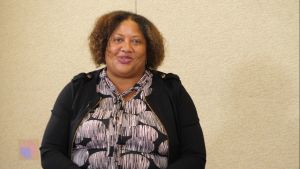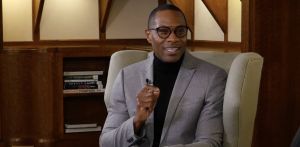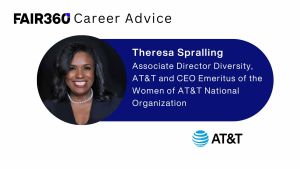I have some thoughts on what executive presence looks like from my experience of meeting with close to 60 chief executive officers and presenting to well over 150 different executive committees. I’ve served three Chiefs of Naval Operations on the CNO executive panel and been on the boards of colleges and universities through seven different presidents. I’ve also met with an SEC Commissioner, two state governors, a Chairman of the Joint Chiefs of Staff and one Marine Corps Commandant.
Executive presence is elusive and hard to pin down because it varies by organization, but to paraphrase Chief Justice Potter Stewart, “I know it when I see it.”
Ultimately, you must project competency and engender trust, and you can never appear to be a lightweight. You can have a sense of humor, you can have light moments, but at the end of it all, you have to have the gravitas of a leader.
1. You must wear your clothes, your clothes must not wear you.
If you’re starting a new job, before you start, I suggest you sit yourself outside the headquarters at the beginning of the day—which is 6:30 to 7 a.m. for leadership at many places—and watch very carefully how people dress. You should be able to tell who is in the corner offices versus who is in Sub-Basement 3. Although this has changed quite a bit in the last 10 years, with suits and ties for men remaining only in New York, I can tell well-dressed casual from sloppy casual. What you will never see in senior leadership is sloppiness. Further, most senior executives are in decent physical condition. Some companies have senior executives who are all in shape. Although you will occasionally see senior people who are overweight, their clothes will be tailored so there are no bulges.
One of the sad things I see at university commencements are ridiculous high-heeled shoes on women and ugly rubber-soled slip-on shoes on men. Five-inch heels have very little use outside of nightclubs or reality shows. Men who want to project authority should have leather soles on their shoes, even if they’re loafers. These days, it’s almost always appropriate to wear a blazer with an open-collar shirt. Make sure the blazer is expensive and well-tailored to you. Same with the shirt. If after 15 minutes you’ve got big, blousey, excess shirt material hanging over the top of your belt, you’ll look sloppy. Trousers can be jeans at some companies. Stay away from pleated khakis.
Be careful where you’re shopping: Think more Nordstrom, never Old Navy, never ever Urban Outfitters. If you think it doesn’t matter, think again. Perceptions are made in seconds, and opportunities disappear more quickly.
Finally, if you wear a watch, wear a sensible one. A simple Timex is fine, but, again, look at the leaders. Some companies are watch places—I’ve seen senior executives with $30,000 watches. I wear an older steel Rolex GMT, which regularly gets compliments.
If you want to be a leader, you will find that you will have to dress very well every day, including weekends, because you never know who you’re going to run into—or who’s going to see you. Women should avoid clingy clothes and/or short skirts. Tailoring is essential for both genders.
2. You must have intellectual curiosity and vigor in your thought.
Most people shut down the learning process when they get their degree; those folks will never be CEOs. If you want to be successful, you must discipline your learning process to include many sources of information on a seven-days-a-week basis. You cannot watch a fluffy morning TV show and then have anything relevant to say when you meet a vice president in the elevator; you have to watch CNBC. My favorite CNBC story: I was watching the network (as is my habit) in a hotel room before meeting with a chief human resources officer, who I knew was a bit of a hard ass. CNBC had a whole segment on potash. The company I was meeting with is all about growing food. Potash is the key ingredient in fertilizer. So the first question I asked the chief human resources officer was, “What’s going to happen with the spike in prices of potash” He raised his eyebrows and we got into a discussion for 20 minutes that was at a very senior level.
As far as what to read: You don’t have to read The Wall Street Journal (I find Murdoch-owned publications difficult to stomach), but you do need to read a publication on the level of The New York Times every day. (The good ones have the best apps.) Speaking of which, you must invest in your tools—subscriptions to Harvard Business Review, professional journals, etc., and the latest, greatest iPad to run them on.
About graduate school: Do NOT waste your money and time earning a master’s degree at a noncompetitive or for-profit school. MBAs are not equal.
3. You must be observant.
You will be noticed if you’re reading Harvard Business Review on the latest iPad in the company cafeteria during lunch. Somebody will see it and file the information away in the back of his or her mind—because it pins you as a player. Watch very carefully who goes in and out of power. Your mentor should be someone in ascendancy; don’t settle for the 30-year veteran who never made it past the director level unless you want to be a 30-year veteran director.
Be careful whom you hang out with: If you hear a lot of moaning and groaning in your lunch conversations, you’re not hanging out with the right people. Winners don’t complain (in public, anyway—and certainly not in front of people who can use what you said against you in a competitive situation). If someone senior seemingly off-the-cuff asks you to lunch, drop what you’re doing and go. Never pass on an opportunity for face time; you can do your work later. And by the way, don’t be late—be there 15 minutes early. Read Harvard Business Review on your snappy new iPad.
4. Behave as the leaders behave, or find yourself a place that is more in keeping with your personality.
When I first met John Stumpf, Chairman, President and CEO of Wells Fargo, I thought he might be a phony. Who could be that nice But he is that nice. And he promotes nice people. After one presentation I made, he was talking to me and said, “I see you’re making friends with Michelle Lee. Keep an eye on her—she’s important around here.” Michelle was just promoted to be in charge of consumer banking for the entire East Coast. She’s a woman who radiates kindness—she has a music degree and took a job as a bank teller while going on auditions after college.
I have yet to meet a jerk at Wells Fargo. In some companies (even some banks I used to do business with), jerks go far. If you’re a jerk, go work for a jerk. I briefly worked for an organization chiefly run by jerks. They were successful, but after the charismatic founder retired, it all went to pieces. There are Wall Street banks that specialize in making very wealthy jerks, but if you’re a nice person, find nice people to work for.
I was recently at a dinner with the CEO and senior leaders of PricewaterhouseCoopers. Part of the discussion was the conscious shift away from promoting people who are good at business but not so good with people. I think this trend will grow—the folks at PwC tend to be thought leaders that way. However, this advice has a condition: Nobody is not going to promote a person who doesn’t have his or her business completely squared away. One of the most aggressive CEOs on business that I know is George Chavel at Sodexo. You won’t find a nicer or more thoughtful leader, but he’s very focused on business—and on winning. Of all the senior leaders I’ve met, I’ve been struck by how most of them are very kind, thoughtful people, even in fields where you might not think you’d find kindness rewarded.
5. Be a community organizer.
I’ve learned more in my nonprofit board meetings about business and people than anywhere else. It’s not enough to write a check, you must do some work. Try to get on local boards and with that experience work your way up to larger boards. Try to join organizations that don’t help your people directly. I spent 10 years as a trustee of Bennett College—a wonderful experience, but you’ll note I’m neither Black nor a woman. Aside from the experience that you’ll gain, if you work for a company that values philanthropy, your philanthropic board experience will be a plus on your job qualifications. If you don’t work for a company that values philanthropy, take a look on our job board. A deep connection with human beings makes people successful on a sustainable basis. Sharp-elbowed selfishness is bad form and not sustainable.
6. Become an expert in your field.
It’s never been easier to be recognized: You can start a blog or a Twitter feed, you can write for Huffington Post, you can make comments on the journal of your profession. People will notice that you’re a thought leader. Be careful, however, to make sure your online presence does not look like you’re fishing for a job—especially if you use LinkedIn. People promote people who are reliable.
7. Learn how to socialize.
I grew up modestly and went to a state university; I didn’t know that at dinner parties you alternate speaking to the person on your left and on your right, by course. But I observed and learned. I also learned that people prepare for dinner parties by knowing something about the people they are going to be sitting with. This helps you be more comfortable when you meet senior people in a social setting—you can ask them questions about themselves.
Interestingly, these things are taught in wealthier households as a matter of course. The wealthy are different; they are prepared to be successful. It’s stressful. I learned that there are almost no casual conversations—everything is assessed and evaluated, but once you get used to it, it’s kind of fun to ask an intelligent question that makes someone senior raise his or her eyebrows in a good way. Successful people enjoy the company of prepared people, even if they’re not successful yet. I found that if you can hold your own in a conversation, successful people will bend over backward to help you get where you need to go. Why Because successful people like to have friends everywhere.
Another part of socialization is traveling. Make it a point to go to places you’ve never been before and learn the local customs. You can do this right in the United States. For example, while living in the South during flight school, I learned that someone saying “Bless your heart” isn’t a good thing.
Of all of these tips, I think being observant is probably the most useful. If you’re observant, the rest of the observations I’ve given you become self-evident.
















